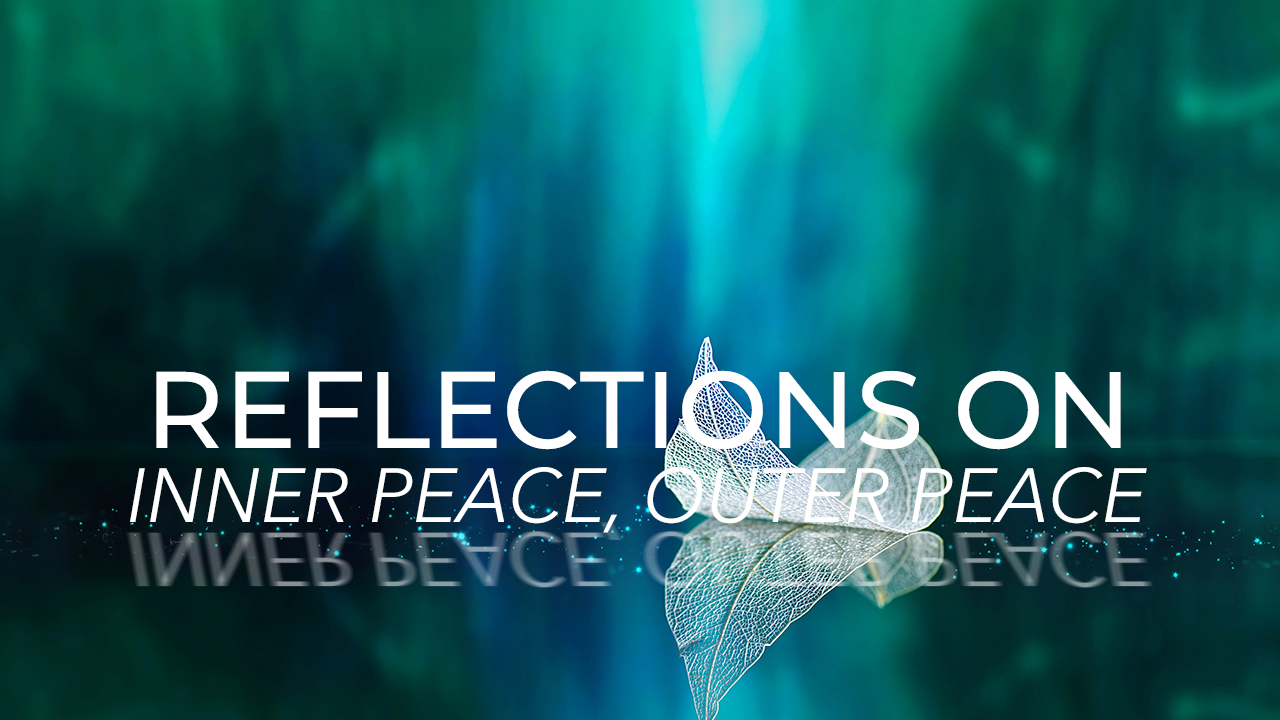What Are You Feeding Your Consciousness?
Dec 13, 2018
The Fifth Mindfulness Training (1), Nourishment and Healing, states: Aware of the suffering caused by unmindful consumption, I am committed to cultivating good health, both physical and mental, for myself, my family, and my society by practicing mindful eating, drinking, and consuming. I will practice looking deeply into how I consume the Four Kinds of Nutriments, namely edible foods, sense impressions, volition, and consciousness. I am determined not to gamble, or to use alcohol, drugs, or any other products which contain toxins, such as certain websites, electronic games, TV programs, films, magazines, books, and conversations….I will contemplate interbeing and consume in a way that preserves peace, joy, and well-being in my body and consciousness, and in the collective body and consciousness of my family, my society and the Earth.
People are often surprised by the notion of “consuming” sense impressions and consciousness, including media. But just as “we are what we eat” with regard to food - so too with consciousness. The stories and media we consume shape our view and understanding of the world. I remember when “reality t.v.” first came out, I purposely avoided it because I felt it was just highlighting people being terrible to themselves and each other - not “reality.” Unfortunately, when people consume this type of media - even if they are aware that it’s not really “real” - they begin to believe this is how people truly are, which impacts how they respond to and engage in the world around them.
Even worse with the news media, which rather than being a summary of what we should know to be informed citizens, is actually a round-up of the worst things happening around the world, running 24/7. At my house, we call it “the bad news.” As ratings drive the content, it’s the most sensational stories that news outlets focus on. If we believe that the world is the way the media portrays it to be, that people are the way they are shown on news stories - we would believe that the world is a frightening and hateful place. How do we respond, collectively and individually, if this is how we perceive the world to be?
I highly recommend NOT consuming very much news and mass media at all. It seems clear to me that mass media is designed not to raise our collective consciousness, but to cultivate fear and alienation in individuals and society. We may think we need to be “plugged in” to be aware of what’s going on. But the truth is, we can be aware of what’s going on without consuming news and television programs running 24/7.
It is possible to consume media mindfully: by being aware of our breathing, bodily sensations, and emotions as we’re watching. We can ask, How is this impacting my mental state? Is this helping me to make a positive contribution by knowing what’s going on, or is it actually impeding my ability to be an effective actor by plummeting me into hopelessness and despair? While it may sound hyperbolic, this is truly the impact that media is having on many people these days. We may also ask, is the news helping us create a better society right now, or simply creating more greed, hatred, and fear in our world?
Thay often talks about the need for journalists and artists to create media and movies that nourish our collective consciousness instead. Though somewhat incipient, there is a movement for “solutions journalism” - journalism focused on how people are working to fix things. Yes! Magazine is another news source that focuses on positive, solution-oriented stories. This helps feed our empowerment, hope, and sense of community, even in the midst of our collective difficulties. Who do we become, how do we act - individually and collectively - if this is the world we believe in?
Whether individually or collectively, we grow that which we attend to, and we get good at what we practice. It may be useful to ask yourself how, instead of what the mass media is feeding us, you can feed a sense of connectedness, efficacy, and compassion - or whatever you’d like to see more of - in yourself and in the world? And how can you connect to (or possibly create) information sources that help do that?
(1)The Five Mindfulness Trainings are Thich Nhat Hanh’s version of the Five Precepts that have been passed down from the days of the Buddha - codes of ethical conduct that are not based on concepts of good and bad, or right and wrong, but how we can live in such a way as to prevent suffering for ourselves and the world around us. See more here: https://plumvillage.org/mindfulness-practice/the-5-mindfulness-trainings/
